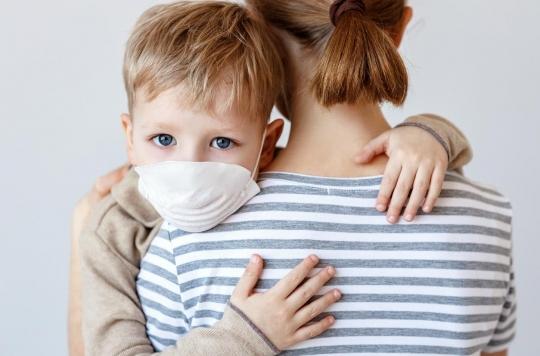A new study shows that by attacking the virus quickly, the innate immune system of children protects them against severe forms of Covid-19.

- Children’s innate immune system protects them from severe forms of Covid-19 by immediately fighting back against the virus.
- The researchers found a very rapid and coordinated action of neutrophils and first response immune cells, which immediately migrate to the site of infection to eliminate SARS-CoV-2.
- This rapid and targeted action of the innate immune system of children may also explain why, even in the event of infection, they do not test positive.
Since the start of the Covid-19 epidemic, the case of the children has remained a mystery for researchers. Although suspected of being “super contaminators” which accelerate the circulation of the virus in the population, they are less affected by the disease and rarely develop serious forms.
A new study conducted by the Murdoch Institute for Child Research (MCRI) in Victoria, Australia, and published in NatureCommunications, gives clues. According to its authors, specialized cells of the child’s immune system target SARS-CoV-2 more quickly, which prevents it from developing a severe form of Covid-19, or even developing symptoms.
“Children are less likely to be infected with the virus and up to a third of them are asymptomatic, which is strikingly different from the higher prevalence and severity seen in children for most other viruses. respiratory, explains Dr. Melanie Neeland, who led the study. Understanding the underlying age-related differences in the severity of Covid-19 will provide important insights and opportunities for prevention and treatment, both for Covid-19 and for possible future pandemics.”
A coordinated and rapid action of immune cells
The researchers analyzed blood samples from 48 children and 70 adults in 28 Melbourne homes infected or exposed to SARS-CoV-2. Immune responses were monitored during the acute phase of infection and for up to two months afterwards.
Among the children followed were two little girls, aged 6 and 2. Tested positive for Covid-19, they only suffered from a slight runny nose while their parents developed more symptoms: extreme fatigue, headaches, muscle pain, loss of appetite and taste. The parents took a fortnight to recover completely.
How can this difference in reaction to the same virus be explained? For Dr. Neeland, children with Covid-19 have shown a more robust innate immune response to the virus than adults. “Coronavirus infection in children has been characterized by activation of neutrophils, the specialized white blood cells that help heal damaged tissue and resolve infections, and a reduction in first-response immune cells such as monocytes, dendritic cells and natural killer blood cellsshe explains. This suggests that these infection-fighting immune cells migrate to sites of infection, rapidly clearing the virus before it has a chance to actually take hold.”
For the researchers, the results of the study clearly show that “The innate immune system, our first line of defense against germs, is crucial in preventing severe Covid-19 in children”and that this immune reaction did not occur in adults.
An immune response even in the event of a negative test
Interestingly, the trial results also show that children and adults who were exposed to the coronavirus but tested negative also had altered immune responses. “Both children and adults saw increased neutrophil counts, up to seven weeks after exposure to the virus, which could have provided a level of protection against disease.”
This confirms an earlier study by MCRI, which found that three children from a Melbourne family developed a similar immune response after prolonged exposure to coronavirus by their parents. Although they were also infected with SARS-CoV-2, these children had developed a very effective immune response to prevent the virus from replicating, which means that they never tested positive.

.














